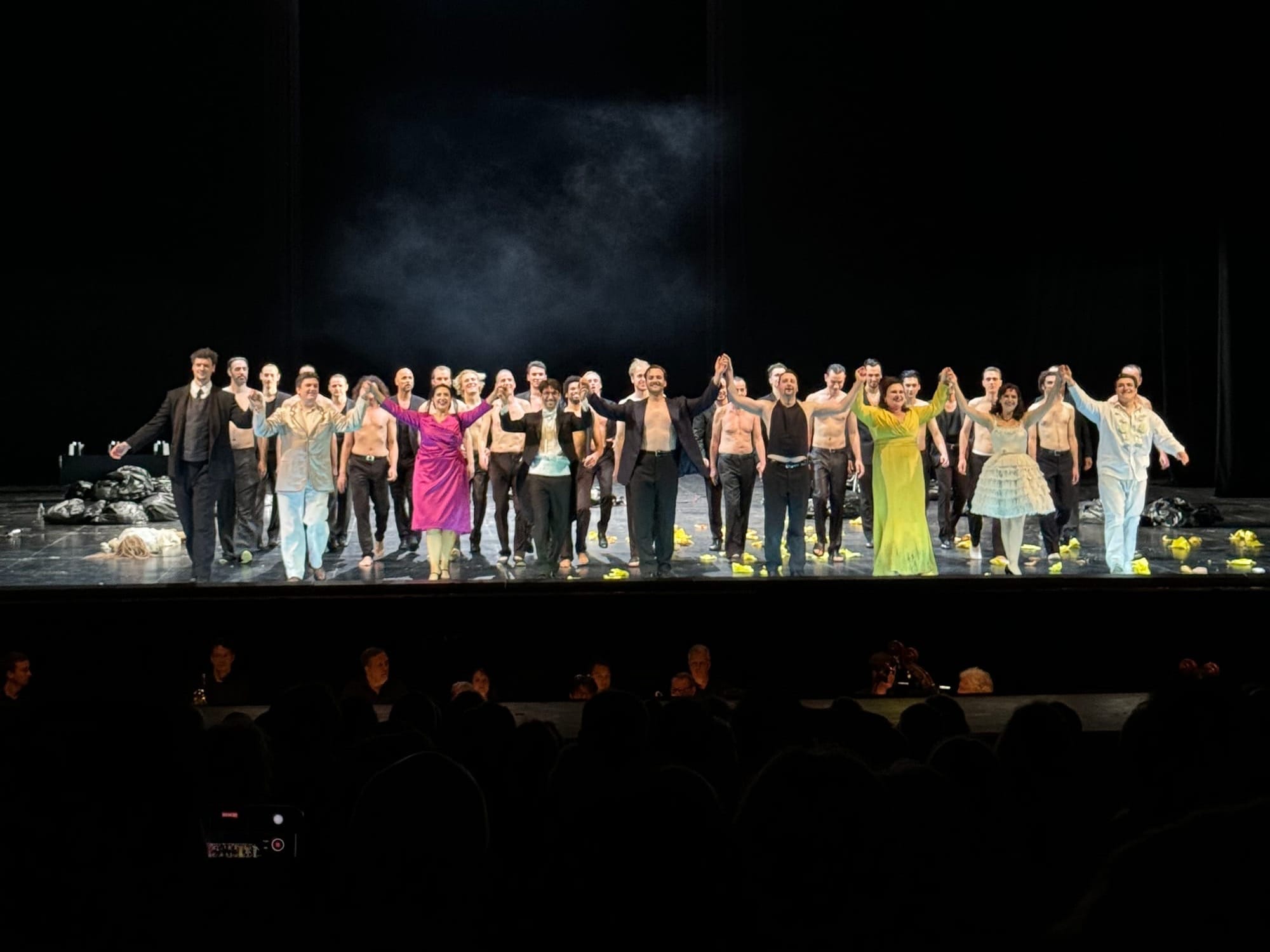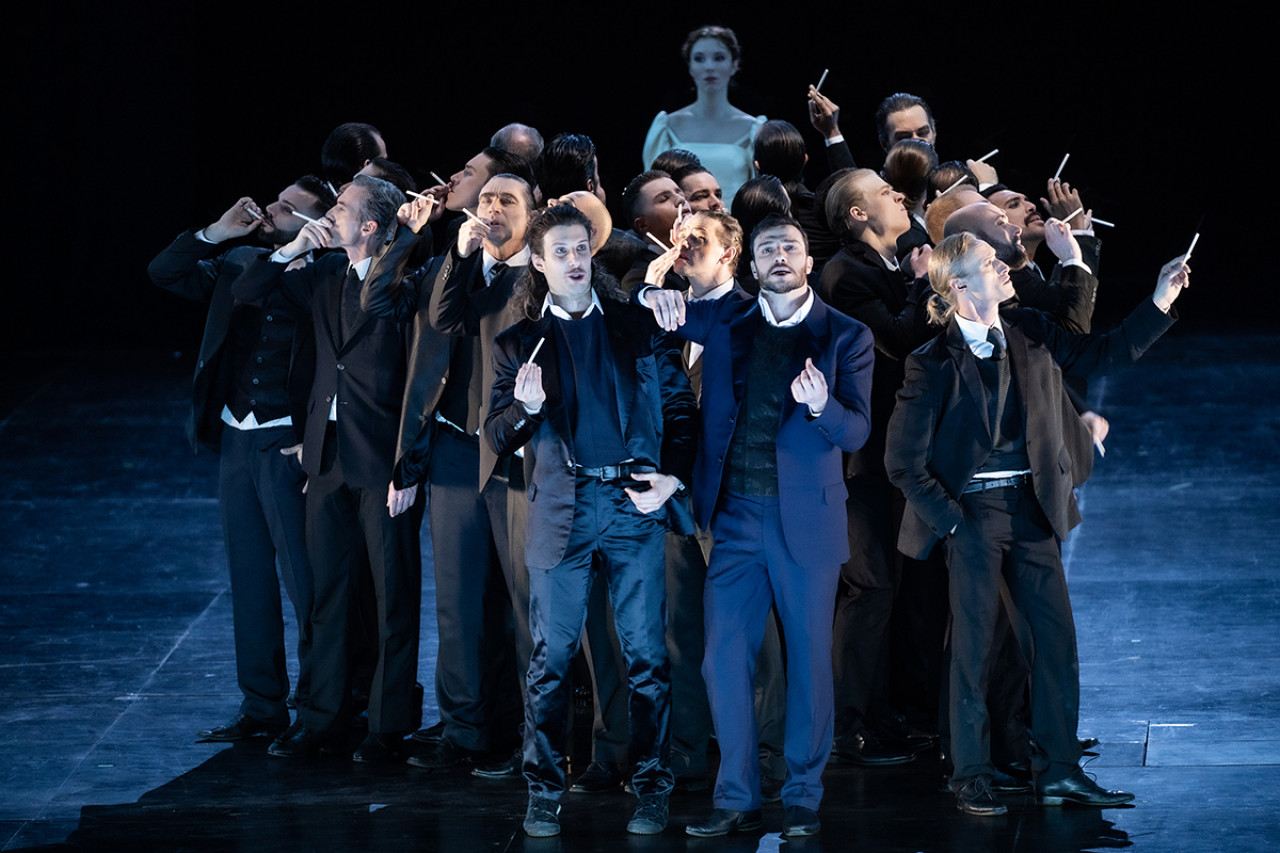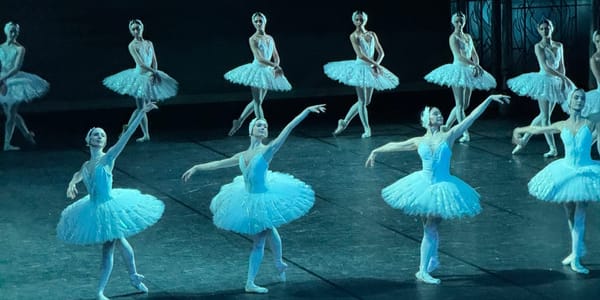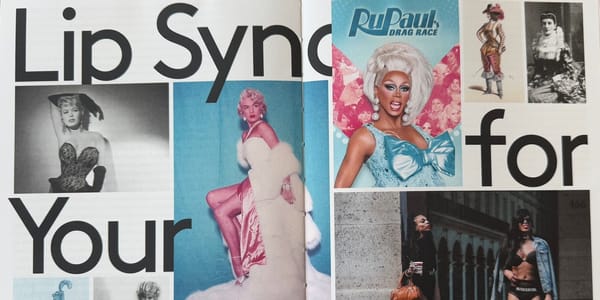Don Giovanni at Deutsche Oper Berlin
Don Giovanni tells a story not just about toxic patriarchy, but about an abuse of power displayed in the (sexual) oppression of women and working-class people at the whim of aristocratic caprice.
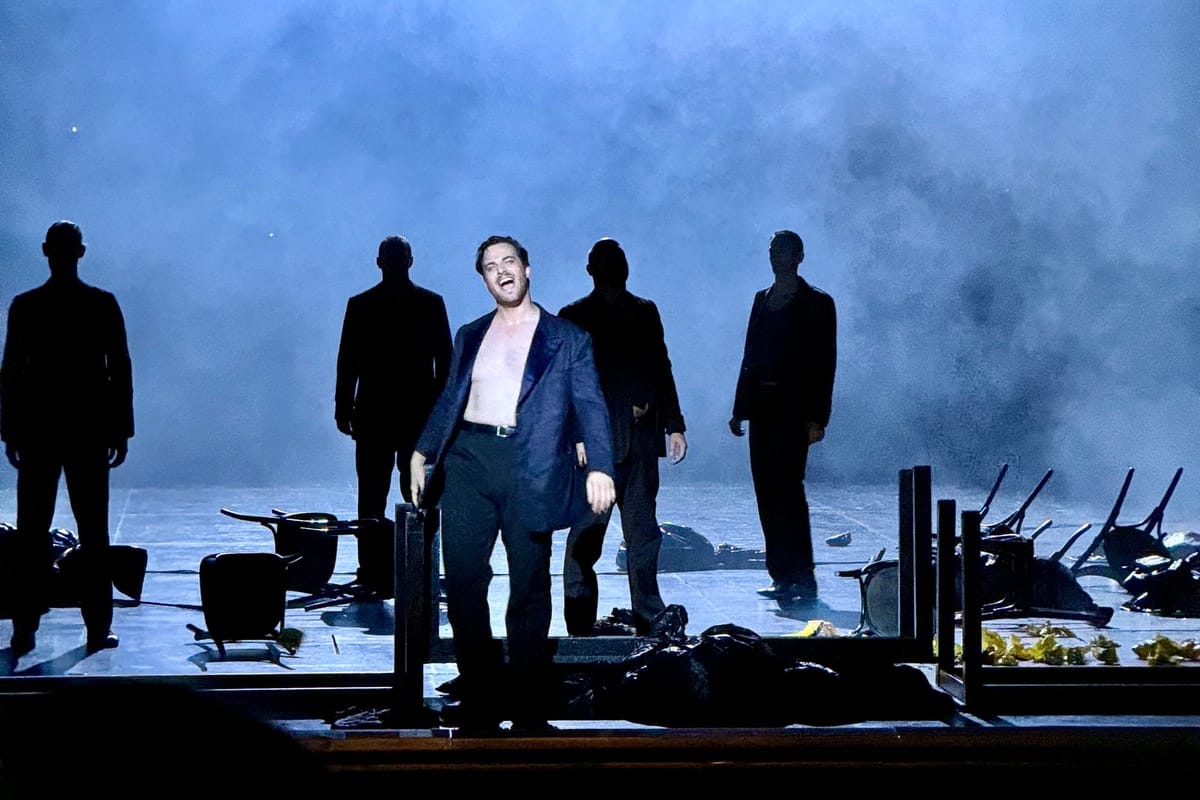
⭐️⭐️⭐️
🎭 Don Giovanni
🎶 Wolfgang Amadeus Mozart
🏛️ Deutsche Oper Berlin
🗓️ 02.07.2024
Don Giovanni, the titular and archetypical character in Mozart’s iconic opera, has been called many things since first stepping onto the stage 237 years ago: masterful seducer, heartbreaker and hell-raiser, challenger of god. Today, it might be fair to call him the original red-flag-avoid-at-all-costs-toxic f*ckboy.
Don Giovanni flings from woman to woman, only to disregard one as soon as another approaches. Yet Donna Anna, Donna Elvira, and Zerlina all seem to approach him with choice and agency: they don‘t so much become victims of his lust, but rather of the emotional abuse they face after he‘s had his way with them. Don Giovanni acts very consciously and with intent throughout it all: In the production at Deutsche Oper Berlin, we see a Don that is ecstatic not only in his sexual appetite, but also in how he recounts his „conquests“. There is no visible guilt, remorse, or self-reflection in his actions, instead even arrogance and pride. He will stop short of nothing, even kickstarting the plot into action by killing the Commendatore, Donna Anna‘s father. It is even implied—no, it is shown—that this Don Giovanni will occasionally also meddle with teenage girls.
Crucially, Don Giovanni‘s lust goes beyond just sexual appetite. In this production, it extends to a lust for power. His audacity in interrupting the wedding festivities of Zerlina and Masetto—not nobles like himself, but simple farmers—speaks to the social hierarchy between them. They are invited to the castle and showered with gifts, but Zerlina ultimately becomes his prey, while Masetto is tortured and sodomized by Leporello and Don Giovanni. Fittingly, the festivities in their „honor“ turn out to be a kinky KitKat-esque celebration (how very Berlin).
Ultimately, even the person perhaps closest and most similar to Don Giovanni is at the mercy of his abuse. Leporello is threatened with death and despair multiple times if he does not bow to his master‘s will (and literally opens the opera by expressing desire to be free from Don Giovanni and his incessant demands). And yet, the servant stays faithful to his master, perhaps because social convention and hierarchy dictate it. Even when Don Giovanni gloats about seducing Leporello‘s own romantic interest, there is not more than brief fury from the servant.
On a broader societal level, Don Giovanni therefore tells a story not just about toxic patriarchy, but about an abuse of power displayed in the (sexual) oppression of women and working-class people at the whim of aristocratic caprice. "Yes, ALL men" seems to be this production‘s moral of the story, with Don Giovanni and his apostles fusing into an indistinguishable Andrew-Tate-evoking amalgamation.
Even with all his galavanting, his thousand one-night-stands, and the „lads“ he keeps around him, Don Giovanni is a mean, lonely person with an ego so large that, even in the face of death, he refuses to acknowledge his responsibility in the pain and devastation of others. Up until the end, Don Giovanni is true to himself, and himself only—and punished for it by descending into hell. #hehaditcoming
